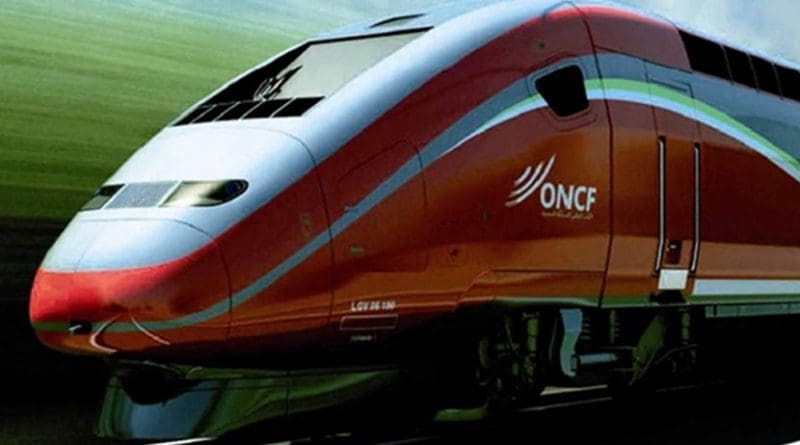Al Boraq: Africa’s First High-Speed Train Expected To Roll Out This Year – OpEd
King Mohammed VI has granted the symbolic name of “AL BORAQ” to the Moroccan project of the high-speed rail line linking Tangier to Casablanca, said Thursday the National Railways Office (ONCF).
AL BORAQ, name of the fantastic winged mount, evokes speed and travel. Easily memorable, it reflects the meaning and culturally strong values carried by an ambitious and large-scale project that bolsters national pride, stresses the ONCF in a statement.
“The AL BORAQ train, bearer of modernity, progress and innovation, is the image of our country, resolutely turned towards building a better future”, adds the same source, noting that it is in this sense and as part of an inclusive approach that the ONCF is launching a competition for the design of the logo of the high-speed train “AL BORAQ”, open to any creative person who can and desires to make his mark on a project made by and for Moroccans.
Travelling at up to 360 km/h, Al Boraq aims to set a new standard in not just efficiency and sustainability but also match the high standards of comfort and convenience that the modern Moroccan passenger demands.
So Morocco will debut its first high-speed train by the end of this year. All Testing has started on the French-made double-decker train cars that will reach speeds of 320km/h. Al Boraq is expected to fully roll out this year. The trains will carry passengers from the northern city of Tangier to Casablanca and cut travel time by half. Funded by governments in Morocco, France, Saudi Arabia, Kuwait, and the United Arab Emirates, the project costs $2 billion.
Tangier, an entry point for many travelers coming to the kingdom of Morocco on flights or ferries from Spain, Italy, and other Mediterranean countries, is currently about five hours by rail from Casablanca. It is worth noting that the available trains carry about three million people annually along the coast between the two, but the Moroccan national rail operator ONCF anticipates that number will double once the new cars begin service this year.
“We will run trains intended for Moroccans and thus adapted to the purchasing power of Moroccans,” ONCF’s director general Mohamed Rabie Khlie told Le Monde. “We do not want a train reserved for high-end customers.”
According to ONCF, the tests occurred on several kilometers of the new line with gradual increases in speed, and it was determined that the line is suitable for traffic at 320 kilometers per hour. In May, the test train reached a speed of 357 km/h linking the cities of Tangier and Kenitra, so it is expected to connect the two cities in only 90 minutes.
The Moroccan high speed train Al Boraq, the first of its kind in Africa, will also connect Tangier with Casablanca in two hours and 10 minutes, less than half the current minimum travel time.
Adding safe and affordable private passenger rail service will provide a needed alternative for those wanting to visit Casablanca, the Moroccan economic capital. Establishing private passenger rail service enables more public transportation options while creating jobs and reducing congestion on Moroccan roadways.
Many believe that the rail will ease travel between Tangier and Casablanca. This is the future. It makes no sense for Morocco trains to run at the same speed as they did 50 years ago.
The ONCF notes that interested people will find, from 16 July 2018, all the necessary information on the participation procedures and the rules of the competition via the institutional site: www.oncf.ma, the site dedicated to the competition (www.alboraq.co.ma) and the official pages of the ONCF on social networks.
The deadline for submitting proposals for the “AL BORAQ” logo is 31 July 2018, stresses the Office, pointing out that the effective operation of the Tangier-Casablanca high-speed rail line project is scheduled before the end of 2018, after the technical commissioning on 19 June 2018 and at the end of the pre-operational phase.

